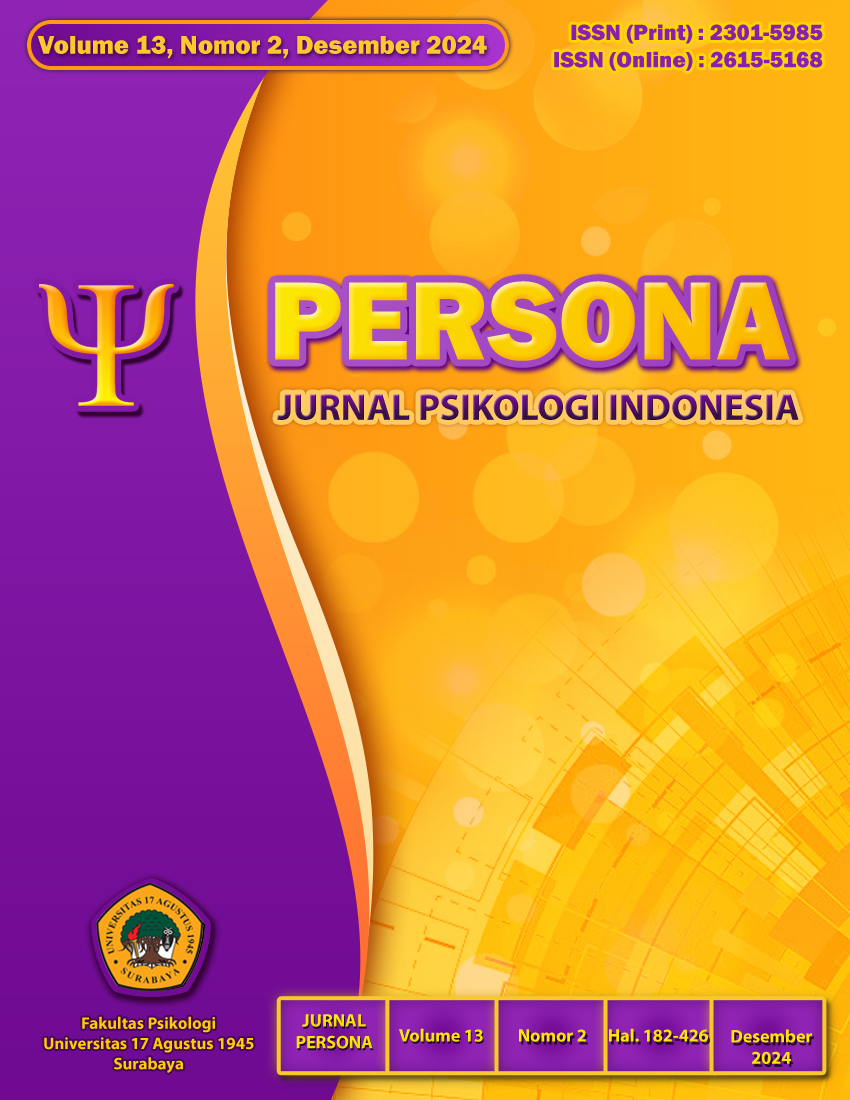Peran moderasi dukungan orang tua dalam hubungan antara ketidaksesuaian tujuan karier dan revisi tujuan karier dewasa muda
The moderating role of parental support in the relationship between career goal discrepancy and young adults' career goal revision.
DOI:
https://doi.org/10.30996/persona.v13i2.10867Keywords:
career goal discrepancy, goal revision, negative career goal discrepancies, parental support, young adultsAbstract
This research aimed to examine the role of parental support, as an important construct in collectivist culture, in the relationships between career goal discrepancy and career goal revision among Indonesian young adults. We surveyed 357 first year private university students (Mage=18,70 years, SD=0,92; 67% female) who were hired by using the accidental sampling technique. We collected participants’ data by using The Negative Career Goal Discrepancies Scale (α=0,91), The Influence of Others on Academic and Career Decisions Scale (α = 0,85), and The Downward Goal Revision Scale (α=0,88). The moderation analysis showed that parental support was a statistically significant moderator of the relationship between negative career goal discrepancy and downward goal revision. The interaction effect between negative career goal discrepancies and parental support was significant in decreasing levels of career goals in young adults, both in the group who felt they had parents who were very supportive in achieving their career goals and those who were less supportive. It highlights the important role of parental support in career planning.
Downloads
Downloads
Published
Issue
Section
License
The author who will publish the manuscript at Persona: Jurnal Psikologi Indonesia, agree to the following terms:
1. Authors retain copyright and grant the journal right of first publication with the work simultaneously licensed under a Creative Commons Attribution ShareAlike License that allows others to share the work with an acknowledgment of the work's authorship and initial publication in this journal.
2. Authors are able to enter into separate, additional contractual arrangements for the non-exclusive distribution of the journal's published version of the work (e.g., post it to an institutional repository or publish it in a book), with an acknowledgment of its initial publication in this journal.
3. Authors are permitted and encouraged to post their work online (e.g., in institutional repositories, pre-prints sites or on their website) prior to and during the submission process, as it can lead to productive exchanges, as well as earlier and greater dissemination of published work






